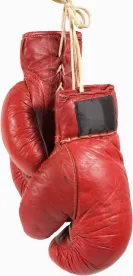On September 26, 2013, a panel of the U.S. Court of Appeals for the Fourth Circuit affirmed the decision of a federal district court in the District of South Carolina granting summary judgment to the defendants in a copyright case. In the 68-page opinion, the Fourth Circuit took special care to lay out guidelines on how to use – and not to use – expert reports in defending against a summary judgment motion on damages. This decision is now final, as certiorari was denied on March 31, 2014.
Background
The copyright case, handled by Greenberg Traurig Las Vegas founding shareholder Mark Tratos and associate Bethany Rabe, arose out of WrestleMania XXIV, a blockbuster annual event put on by the World Wrestling Entertainment (WWE). WWE had contracted with Floyd Mayweather, world-renowned professional boxer, to appear in a match against Paul “the Big Show” Wight. During that match, Mr. Mayweather entered the ring with the original song “Yep” playing in the background. The plaintiff, Anthony Dash, a relatively unknown DJ, producer, and hip hop artist, sued Mr. Mayweather and WWE, claiming that the song “Yep” was Mr. Mayweather’s lyrics over a beat that Dash had created.
Dash was not eligible for statutory damages, so he sought actual damages and infringer’s profits. The defendants filed motions for summary judgment, claiming that Dash was entitled to no damages. The parties argued that (1) infringer’s profits could not be awarded since Dash could show no causal link between the alleged infringement and the profits of the defendants, and (2) Dash had no evidence of any actual damages where the beat had no market value.
In defense of his actual damages claim, Dash relied only upon his copyright damage expert’s report. Dash’s expert report had theorized that based on fees that WWE paid to other musicians for the use of their works, Dash’s composition had a “maximal value” of $3,000, but did not expound upon how he reached this figure. The court noted that Dash had no reported income related to music on his tax returns and that Dash had offered no evidence that he had previously sold other musical compositions. In the summary judgment context, once a defendant has properly supported his claim that there are no actual damages, the plaintiff must respond by presenting nonspeculative evidence that such damages do exist. Finding the evidence of market value speculative, the district court granted summary judgment on damages and closed the case.
Expert Opinion Advice from the Fourth Circuit
On appeal, Dash argued that his expert report provided evidence of the beat’s value, namely, a $3,000 lost licensing fee, and that summary judgment against him was erroneous. The Fourth Circuit disagreed, affirming the district court. The following lessons can be drawn from the Fourth Circuit’s detailed discussion of the use of expert reports in establishing actual damages:
-
Experts should state a minimum as well as a maximum value for actual damages.The opinion stated pointedly that “[t]he possibility that our criticism will prompt attentive plaintiffs’ attorneys to require their experts to expressly state some nominal minimal value for an allegedly infringed work is, frankly, desirable.” The Court goes on to note that the threshold inquiry of whether the expert has opined as to the fact of actual damages “could easily be avoided by a clear statement that the copyrighted work has some market value.” (emphasis in original). The implication here is that without a minimum value assigned to the work, a court may well assume that the work has no value.
-
If the expert must extrapolate from other works’ values, the expert must clearly explain his or her reasoning. The Fourth Circuit had a lot to say about the expert’s reliance on the amount paid to much more successful artists for their songs for the show (benchmarks). Although acknowledging that for a “first timer,” evidence of licensing fees paid to other artists may be the only way to establish value, the Fourth Circuit warned of undue speculation. The court explained that the expert report “failed to include any description of the ‘process of reasoning’” that led to its conclusion regarding value. Specifically, the report was deficient because:
-
It failed to explain how the expert selected the benchmarks
-
It failed to indicate whether and to what extent Dr. Einhorn had considered the differences between the benchmarks and Dash’s composition
-
It failed to address the fact that Dash’s claim was only in the instrumental portion of the work, not the completed work, when the benchmark fees were for completed works
-
Although it established that music in general was important to WWE, it did not establish that Dash’s composition in particular held any value.
-
The report must be clear on timing. The expert failed to make clear whether the plaintiff’s other productions referenced in the report predated the infringement. If the plaintiff became successful only after the infringement occurred, the value of his other works has little bearing on the value of the infringed work. Because the report did not make the dates clear, the court could not rely on the references to prior recognition and accomplishments.
-
Don’t put all your eggs in one basket. Having the expert incorporate facts into his or her report that could be established by other means may not be the best strategy. Here, the fact that the expert referenced some prior contracts and accomplishments was insufficient, as the court deemed these references too speculative to create a genuine issue of material fact. The Fourth Circuit suggested that an affidavit from the plaintiff or prior contracts establishing the value of Dash’s other works could have perhaps prevented summary judgment.
-
Provide your expert with evidence he can rely upon. Dash failed to provide his expert with evidence that he had successfully licensed prior beats. Lacking such evidence, the expert had no reasoned facts upon which he could base an opinion. While the expert’s report was strongly criticized by the Appeals Court, the real problem was that the lawyers who hired the expert failed to provide sufficient evidence upon which the expert could reasonably base his opinion.




 />i
/>i

